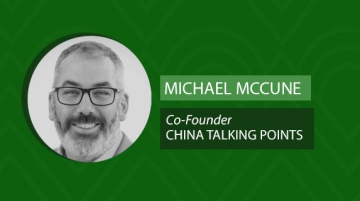
Xie Yajing is among the legions of faceless Chinese officials who are little known outside of their own bureaucracies. Despite his prominence as a senior Chinese commercial counselor for Africa and West Asia, not a single image of Xie appears in a Google image search of her name (quite an accomplishment, really, in this day and age). Her low profile aside, Xie is among the leaders of China’s intensifying battle for influence in Africa between Beijing and the West. In a recent announcement that went entirely unnoticed by the international media, Xie unveiled a bold initiative that some experts believe could represent a defining turn in Sino-African relations. China understands that African access to foreign agricultural markets is a powerful diplomatic lever.
In an interview with the Kenyan newspaper “The Standard,” Xie revealed that Beijing will now permit 4,000 African products to be imported to China duty-free. China has signed so-called “free access agreements” with over 20 African countries, according to Xie, boosting Q1′ 2010 trade volume 24% to just under $28 billion. While the vast majority of the products on the duty-free list are industrial items, at least 25% of that list is made up of agricultural goods. That is a significant number and one that should send shivers of fear down the spines of every Western foreign policy leader who is concerned about their countries’ rapidly diminishing standing in Africa vis a vis the Chinese. For all the public posturing of “trade NOT aid” that western leaders preach to their African counterparts, industrial countries continue to undermine African economic development with billions of dollars in agricultural subsidies that artificially suppress global commodity prices. The Center for Trade and Development best summarized the destructive effects of these European, Japanese and U.S. farm subsidies:
High subsidies in developed countries protect the market in these countries from producers in other countries who may produce more efficiently. This protection, which favours a small number of very large farmers and farm corporations, encourages overproduction. The excess production is then “dumped” on the world market. The cheap subsidised products drive down world prices and badly affect the chances of developing countries earning from export of agricultural commodities and products.
In his recent article, “Hearts, Minds and Wallets: Lessons from China’s Growing Relationship with Africa,” Dr. David Robinson of Australia’s Edith Cowan University in Perth, Australia suggests that granting African commodity producers access to the industrial world’s agricultural markets would no doubt be among the most effective tools the West could employ to stem the rising influence of the Chinese on the continent:
The West must prepare to engage with the Africa of the future…. [Princeton N. Lyman] writes that Western states, “have one more major economic card to play: opening their markets to African agricultural products. The benefit to Africa could dwarf all that China and India together could do for Africa’s development” (2005). If the West adopts this approach to Africa now, rather than in the future, it can both help to shape and take advantage of Africa’s transition, rather than respond to it from a position of reaction and historical culpability. The West really has no choice.
However, in an interview with China Talking Points for the “China in Africa” podcast, Dr. Robinson acknowledged that his recommendations will likely fall on deaf ears in Washington, Brussels and Tokyo as the domestic political pressures there for continued massive agricultural subsidies will not dissipate soon:
It is within this context, as highlighted by Dr. Robinson, that Beijing’s move to make it easier for African agricultural exporters to enter China’s expanding market should be seen as a powerful diplomatic tool that can effectively enhance bilateral relations with African states. In the broader context of China’s massive natural resource extraction deals, infrastructure development programs and now the concerted effort to lower tariffs on thousands of African industrial and agricultural products, the West’s economic and political relevance in the region is undeniably diminishing at a rapid pace.






